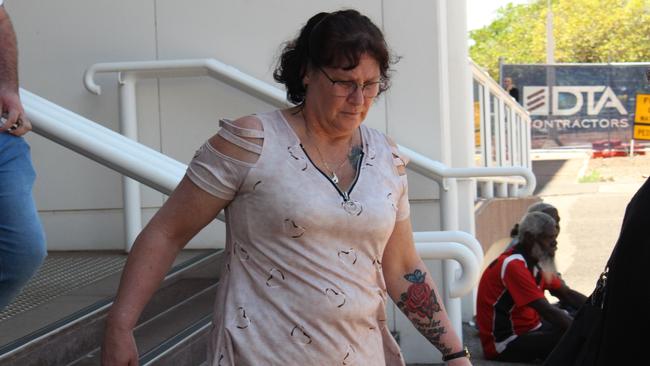Joshua Mason ‘almost got away with fatal Kumanjayi Napurrurla Dixon hit-and-run’, court hears
A court has heard that ‘but for the deceased’s leg being left on the highway’, there was ‘a strong possibility’ the woman’s family would never have known what had become of the beloved grandmother.

Police & Courts
Don't miss out on the headlines from Police & Courts. Followed categories will be added to My News.
A man who killed a woman with his car during a late night drug run before enlisting his mother to help cover it up would probably have got away with it if he had realised the dead woman had lost a leg in the crash, a court has heard.
Joshua Mason and his mother Deborah Mason returned to the Supreme Court on Monday after the crash that took the life of Anmatyerre grandmother Kumanjayi Napurrurla Dixon in the Darwin Rural Area in June last year.
Each has pleaded guilty to attempting to pervert the course of justice and interfering with a corpse while Joshua Mason also pleaded guilty to hit-and-run driving causing death.
Crown prosecutor Tami Grealy said Joshua Mason’s offending — “which is not the collision but his appalling conduct thereafter” — was “truly morally reprehensible”.
“But for the deceased’s leg being left on the highway, there is a strong possibility, in my submission, that the offending wouldn’t have been discovered,” she said.
“The deceased would have become another missing person and her family would have been left in the intolerable position of just not knowing what had happened to her.”
Ms Grealy said Joshua Mason’s conduct was “undoubtedly” more serious than that of his mother, who helped him move Ms Dixon’s body after the crash.
“It was conduct that they were embarking on for his benefit to cover up his crime and his level of contact with the deceased and the indignity that he afforded her was far more serious,” she said.
“Even when he was giving his interview he lied about things that, in my submission, he probably thought he could get away with.”
Joshua Mason’s lawyer, Ambrith Abayasekara, said his client admitted to moving the body “for purposes of avoiding detection, which means that he must have had a belief that he had done something wrong”.
But he said he “thought that he was in serious trouble” because he was unlicensed at the time, despite the fact that “in reality, that fact alone would not have resulted in a serious charge”.
Mr Abayasekara said “as to moving the body the second time”, his client was “feeling a lot of guilt about involving his mother in the offending”.
“He wanted to try and absolve her from it to some extent by changing the location of the body,” he said.
“It really kind of seems that once the defendant made the initial, misguided decisions here, things snowballed, he in some ways had locked himself in to this course and things just kept on developing.”
Justice Jenny Blokland will sentence the pair at a later date.





